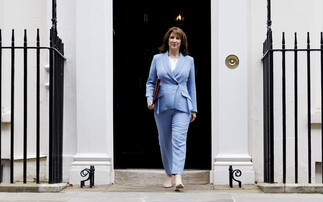With parts of Britain having been under water, forest fires in Southern Europe and the annual hurricane season hitting parts of the Caribbean and southern USA, it is increasingly hard to get away from news of climate change and how it is impacting day to day life.
Without wanting to praise those who led the argument that climate change is the most serious issue currently facing the human race, it is now becoming clear that it also represents one of the biggest investment themes for the next twenty years.
As such, it is time that professional and private investors alike understand how and why climate change and investing are related and further how they can adjust their investment portfolios accordingly. This is not just about Socially Responsible Investing (SRI) or even whether you believe the scientific evidence.
While many of the potential effects are undeniably negative, climate change also presents significant opportunities, and almost every company, whether directly connected to climate change or not, has the potential to be affected - as every business of whatever type located in New Orleans found to their cost.
Our view is that, as a result of this shift in public and political opinion, there will be material changes in demand for goods and investment services and that this will have a significant influence on most industries and sectors of the economy. Climate change will be a significant investment theme for many decades to come with two principle themes. Firstly, mitigation – companies taking action to prevent the worst of future climate change and second, adaptation – companies adapting to the climate change that is by now inevitable.
We are already seeing action from governments and individuals to address climate change. There is a commitment that 20% of the EU’s power will come from renewable energy sources by 2020; carbon trading has been introduced; the UK Climate Bill has been introduced; eight climate change related Bills are on the floor of the US Congress and Senate; Australia will phase out the use of incandescent light bulbs by 2010 and Canada by 2012; differential taxation on cars has been introduced and more regulatory and tax changes are to come.
We believe that the counterargument, “investing in mitigation of climate change is too expensive,” is false. There is plenty of low hanging fruit – for example the tightening of building standards to improve building insulation and increasing fuel and lighting efficiency. Other examples of mitigation include improving the efficiency of aircraft engines (SKF and Rolls Royce); the introduction and improvement of hybrid vehicles (Toyota); the use of liquid natural gas a low carbon fossil fuel (BG); the increased use of biofuels which has benefited the Agricultural sector (Deere and Agco). Railroads are another sector that may benefit from the mitigation theme, along with nuclear power generation.
The Schroder Global Climate Change Fund, which launches on 28 September 2007, will be a thematic global portfolio spanning many sectors. It will not be an “ethical” or a “green” fund and will take a broad view to avoid the dangers of price bubbles inherent in narrow sectors. It will have an unconstrained, high conviction portfolio of 50-100 stocks and will aim to outperform the MSCI World Index. For more information, please visit www.schroders.co.uk/climate or call Schroder Investor Services on 0800 718 777*.
*Please note that telephone calls to Schroders may be recorded.
For professional advisers only. This material is not suitable for private customers. Schroders has expressed its own views and these may change. The data contained in this document has been sourced by Schroders and should be independently verified before further publication or use. Exchange rates may cause the value of overseas investments and the income from them to rise or fall. The fund may make use of derivatives which involves a higher degree of risk and can be more volatile. Portfolios which invest in a smaller number of stocks carry more risk than funds spread across a larger number of companies. Investments in smaller companies may be less liquid than in larger companies and price swings may therefore be greater than in larger company funds. Launch date for the fund is 28 September 2007. Issued in September 2007 by Schroder Investments Limited, 31 Gresham Street, London EC2V 7QA. Registered No: 2015527 England. Authorised and regulated by the Financial Services Authority.














